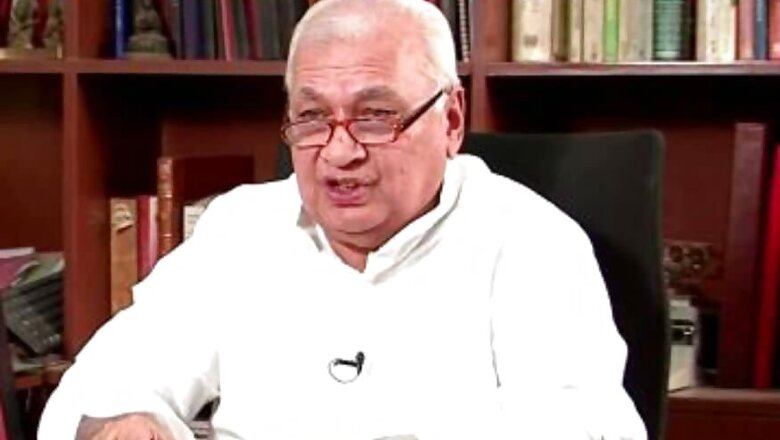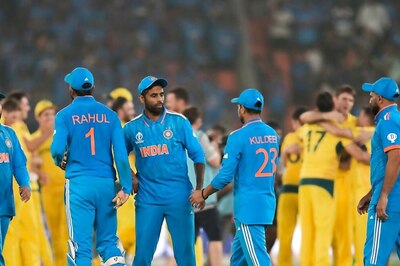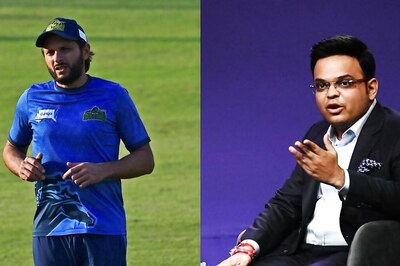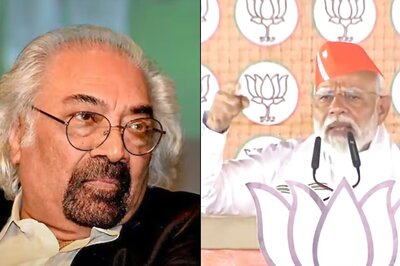
views
There have been some responses about the appointment of Arif Mohammad Khan as the governor of Kerala saying that it is on expected lines. However, political parties in the state were expecting someone from the Narendra Modi-Amit Shah coterie, a ‘parivar karyavahak’ cast in the mould of the Rashtriya Swayamsevak Sangh (RSS), considering the party supremo’s frequent reminder to followers to tirelessly work for capturing power in West Bengal and Kerala.
Hence, Khan’s appointment as the governor of the last Left-ruled state seemed an unexpected choice. There is confusion in the camps of both the Left Democratic Front (LDF) and Congress-led United Democratic Front (UDF) about how to analyse the new move in the elaborate game plan of the coterie that has made calculated moves so far.
We should not turn a blind eye to the fact that whenever the BJP has to power, it has sent to Kerala sagacious personalities as governors. We have the examples of P Sadasivam and Sikandar Bakhth. However, most political functionaries were anticipating a prominent Sangh Parivar figure for the post. Hence, the appointment is something about which one can heave a sigh of relief.
Muslim League legislature party leader MK Muneer made a significant remark that the appointment is a sign of gratitude of the Modi government for Khan’s support to the triple talaq bill and abrogation of Article 370 that granted special status to Jammu and Kashmir.
Soon after his appointment to the gubernatorial post, Khan said he would seek a healthy conversation with the Muslim community in Kerala on many issues, including Sharia. From this, we can understand that Muslim personal law is an important item in his agenda and that does not bode well as it is a sensitive issue for the community in the state.
It is more sensitive than even the Babri Masjid issue for Muslim organisations in Kerala. It is only on the issue of preserving the Muslim personal law that organisations such as Sunni, Salafi, and Jamat-e-Islami that differ on a spectrum of ideological issues come together on a single platform. It is regarding the Sharia controversy following the Shah Bano case in 1984 that this unity became clearly visible in the state.
This cause, in fact, united the Indian Union Muslim League and All India Muslim League that otherwise were at loggerheads. Ideological differences and organisational narrow-mindedness are factors that keep Muslim bodies in the state into separate blocs. Only joint protests on the issue of civil code are exception to the rule.
One of the favourite topics of Khan is that there should be a reform in such legislations and approaches. As his book ‘Text and Context: Quran and Contemporary Challenges’ and innumerable articles and speeches reiterate this point, he cannot keep these issues at arm’s length. We will have to wait and see how his acts and positions are received by the political and religious organisations in the state.
Khan became a cynosure of the media in 1986 when he resigned from the Rajiv Gandhi Cabinet in protest against the Muslim Women (Protection of Rights on Divorce) Bill introduced by the then Prime Minister.
He has earned the image of an anti-Sharia personality ever since. Left parties, especially the CPM, which strongly supported him at that time, do not have the same stand on the issue anymore. The Left parties stood at the forefront of those who opposed criminalisation of triple talaq. They have the same stand on the issue of the Uniform Civil Code.
It is a painful experience for Khan that the Sharia controversy and the opposition of the All India Muslim Law Board jeopardised his political career, though he had the knowledge, sagacity and experience to be at the forefront of Indian politics. He might be personally nursing the happiness about having been able to avenge the grudge on the triple talaq issue. He is unlikely to get the support of mainstream political parties on this issue, except the BJP.
The Uniform Civil Code does have equal importance in the manifesto of the BJP-led National Democratic Alliance (NDA) like Article 370. Naturally, Kerala would be the hotbed of strong agitations against the government on this issue. The argument of prominent social critic Shahjahan Madampat that we have to analyse the mission of Khan in the context of the political climate is relevant.
His predecessor, Justice Sadasivam, was a governor who was too cautious to step into controversies. His main focus was on the responsibilities as his role as the chancellor of universities. One of the remarkable steps in that direction was the setting up of a fund of Rs 5 crore for an annual award for the best university in the state.
We can expect Khan to also focus on higher education in the state, since he had started his career in politics as the student union president at Aligarh Muslim University. Someone like Khan, who has wide-ranging knowledge and is extremely well-read, should desist from unnecessary controversies and can, on the other hand, contribute further to the educational sector. Also, important is the issue of a governor’s role in the activities being carried out by Pinarayi VIjayan government under the title of ‘Rebuild Kerala’, especially when the central government is indifferent to post-flood disaster management in the state.
(The author teaches at the University of Kerala. Views are personal.)



















Comments
0 comment